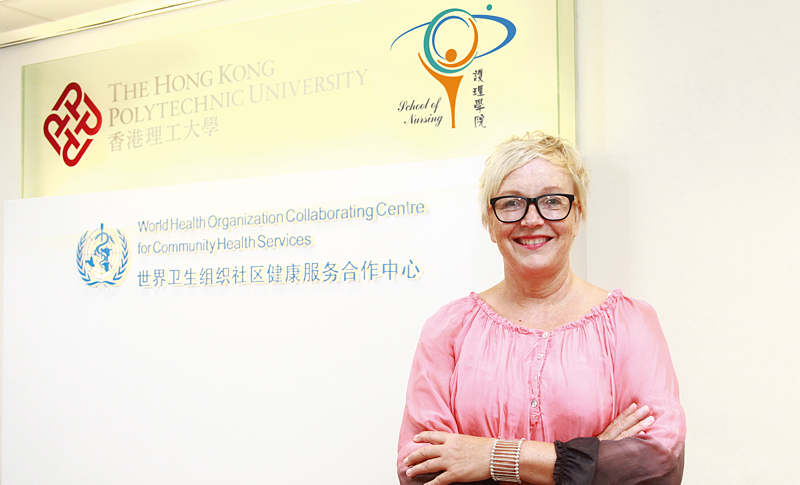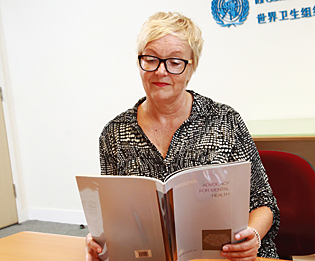
Prof. Maritta Valimaki
Improving lives through evidence-based nursing practice is the key to enhancing mental healthcare worldwide, believes Prof. Maritta Valimaki, newly appointed Professor in Nursing.
A recognition that collaboration between Europe and Asia could help to improve the lives of mental health patients and their family members as well as the healthcare services recently brought Prof. Valimaki from Finland to Hong Kong, where she has taken up the position of Professor at the School of Nursing. Although not originally planning a career in academia, she has excelled in it, having spent the past 25 years at the University of Turku, with honorary appointments at the University of Tampere in Finland, the University of London in the UK and Tongji University in China.
After a six-week period as Visiting Professor at PolyU in 2015, Prof. Valimaki realised that the University offered an ideal opportunity for her to contribute to the development of mental health education and research in Asia. She explained that well-educated nursing staff is the foundation of good health service. Referring to Finnish nursing education, she said that the lack of specialised psychiatric and mental health nursing had left a big gap, as general nursing is insufficient to prepare nurses to work in all specialties.
Reflecting on the essential qualities of a good nurse, Prof. Valimaki commented, “the first and foremost is the willingness and capacity to listen to patients and their family members, which requires changes in attitudes and treatment culture. Knowledge of evidence-based practice is equally important.” She observed that although many experienced nurses develop “their own philosophy and practices for good nursing care” over the years, these practices may not necessarily reflect patients’ needs or the most effective methods, according to current research evidence.
Prof. Valimaki certainly keeps well abreast of that evidence. Over the past 10 years, her own research has focused on the application of new technologies in healthcare. Among the first researchers to study the development of e-health applications for patients with serious mental health disorders, she and her research group have examined the use of SMS reminders to encourage adherence to medication among patients with psychosis, adapted an Internetbased education programme for mental health patients and considered the feasibility of using digital gaming to improve the functioning of people with traumatic brain injury.
In the new academic year, Prof. Valimaki plans to make use of every opportunity to share with PolyU students her findings and broader outlook on the mental health nursing profession. Her teaching philosophy is based on the tenet that “it is always better to be positive than critical”. With this in mind, she strives to offer students respect, collaboration, motivation and encouragement. PolyU students, she said, were certainly “eager to learn, motivated and hard working”. That augurs well for nurturing a new batch of evidence-sensitive, patient-focused nurses who can make significant contributions to mental healthcare in Hong Kong and beyond. ♦

